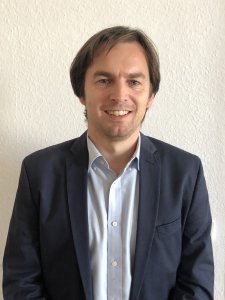Presented By: Center for Armenian Studies
CAS Film Screening and Discussion | Contrapuntal Montage in the Films of Artavazd Peleshian
Daniel Fairfax, Assistant Professor in Film Studies, Goethe Universität-Frankfurt

IN-PERSON AND VIRTUAL EVENT
Amphitheatre, 4th Floor
Rackham Graduate School
915 E. Washington Street
Ann Arbor, MI 48109
Or participate virtually by registering in advance for the webinar: https://myumi.ch/mxx7w
After registration, you will receive a confirmation email with instructions on how to join the webinar.
Virtual participants will be able to join the lecture at 5:30 PM, after the in-person screening of the film "The Seasons" (1975).
In 1971, the Armenian filmmaker Artavazd Peleshyan, who had already established a name for himself with found footage films such as “The Beginning” (1967) and “We” (1969), articulated his theory of contrapuntal montage in the short programmatic text “Montage-at-a-Distance, or: A Theory of Distance”. Building on the tradition of earlier Soviet directors such as Sergei Eisenstein and Dziga Vertov, Peleshyan postulated a form of montage that could create contrapuntal effects, not only when juxtaposed, but also at a distance from each other, through the use of formal repetitions and variations.
This talk gives an overview of Peleshyan’s theory of montage, and how it has been applied in films whose themes have ranged from the history of the Russian revolution (“The Beginning”), to Armenian national self-conscious (“We”), the space race (“Our Century,” 1982) and, in his most recent work, finished in 2021 after a three-decade hiatus from filmmaking, humanity’s relationship with the natural environment (“La Nature”). Additionally, the diverse influences that Peleshyan’s reinvigoration of the practice of cinematic montage has had on other filmmakers – notably Jean-Luc Godard and Chris Marker – will be explored.
Daniel Fairfax is assistant professor in film studies at the Goethe-Universität Frankfurt. He has recently published a two-volume history of the French film journal Cahiers du cinéma’s Marxist period, “The Red Years of Cahiers du Cinéma (1968-1973)” (Amsterdam University Press, 2021).
If there is anything we can do to make this event accessible to you, please contact us at caswebinars@umich.edu. Please be aware that advance notice is necessary as some accommodations may require more time for the university to arrange.
Amphitheatre, 4th Floor
Rackham Graduate School
915 E. Washington Street
Ann Arbor, MI 48109
Or participate virtually by registering in advance for the webinar: https://myumi.ch/mxx7w
After registration, you will receive a confirmation email with instructions on how to join the webinar.
Virtual participants will be able to join the lecture at 5:30 PM, after the in-person screening of the film "The Seasons" (1975).
In 1971, the Armenian filmmaker Artavazd Peleshyan, who had already established a name for himself with found footage films such as “The Beginning” (1967) and “We” (1969), articulated his theory of contrapuntal montage in the short programmatic text “Montage-at-a-Distance, or: A Theory of Distance”. Building on the tradition of earlier Soviet directors such as Sergei Eisenstein and Dziga Vertov, Peleshyan postulated a form of montage that could create contrapuntal effects, not only when juxtaposed, but also at a distance from each other, through the use of formal repetitions and variations.
This talk gives an overview of Peleshyan’s theory of montage, and how it has been applied in films whose themes have ranged from the history of the Russian revolution (“The Beginning”), to Armenian national self-conscious (“We”), the space race (“Our Century,” 1982) and, in his most recent work, finished in 2021 after a three-decade hiatus from filmmaking, humanity’s relationship with the natural environment (“La Nature”). Additionally, the diverse influences that Peleshyan’s reinvigoration of the practice of cinematic montage has had on other filmmakers – notably Jean-Luc Godard and Chris Marker – will be explored.
Daniel Fairfax is assistant professor in film studies at the Goethe-Universität Frankfurt. He has recently published a two-volume history of the French film journal Cahiers du cinéma’s Marxist period, “The Red Years of Cahiers du Cinéma (1968-1973)” (Amsterdam University Press, 2021).
If there is anything we can do to make this event accessible to you, please contact us at caswebinars@umich.edu. Please be aware that advance notice is necessary as some accommodations may require more time for the university to arrange.